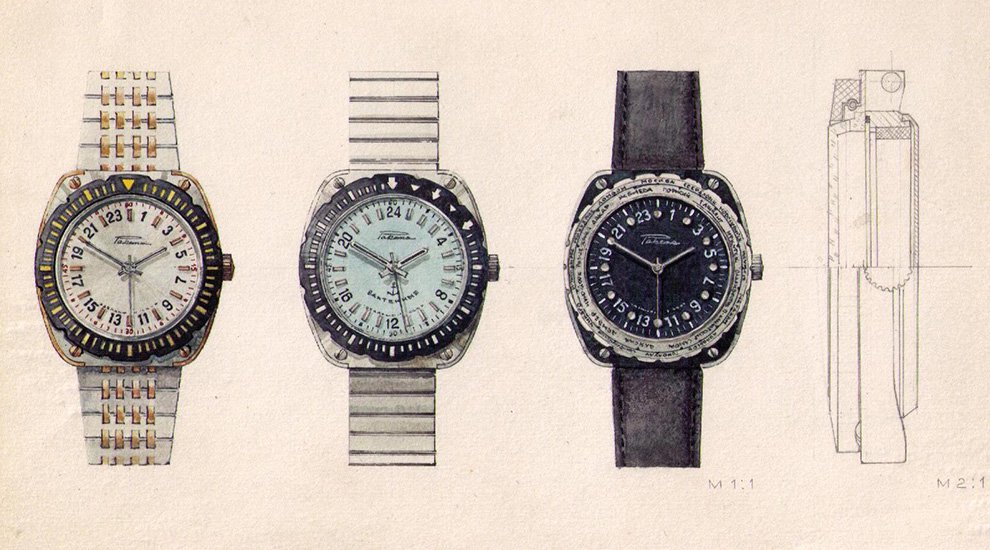Raketa Watches Trials Blockchain Technology to Fight Counterfeiting
Blockchain Engine and Petrodvorets Watch Factory have introduced blockchain technology into the manufacturing process of Raketa watches, making Raketa one of the first companies in the world to record the production of physical goods in the blockchain.
Established by Peter the Great in 1721, Petrodvorets Watch Factory is one of Russia’s oldest businesses. After the Second World War, the factory produced watches under the brand name Pobeda until 1961, when production of the Raketa [Rocket] watches started, named in honor of the first flight into space by Yuri Gagarin.
In a bid to restructure the historical watch brand, the company entered a rebranding stage in 2009 under the direction of Russian, Swiss and French experts, with director Jacques von Polier heading the creative and design department.
With an international team of Blockchain Engine developers working together with the Raketa, it wasn’t long before they were embarking on a large-scale production to implement blockchain technology in the construction of the luxury line of watches in an area that is often imitated in Russia.
Speaking to Bitcoin Magazine, Blockchain Engine spokesman Ivan Kuznetsov said that his team understands the enormous potential of blockchain technology and started looking at how it would bring real benefits to companies in the spring of 2016.
“Among the applicants were car manufacturers, jewelry manufacturers, unique luxury objects, and smartphones,” he said. “We have carefully examined the information about products most often counterfeited, and it turned out there is a whole market of watch imitation, with the most falsified brand in Russia [being] the Rocket.”
The use of blockchain will allow confirmation of the authenticity of each watch, which will drastically reduce the possibility of forgery. As each luxury watch will have a serial number associated with it at the production stage, they make the perfect items for a digital registry.
Inputting the relevant information on the blockchain removes the need for paper certificates. Unsurprisingly, this method of recording information has long been fraught with problems, as they can easily be forged or lost.
Kuznetsov said that after coming into contact with von Polier, the team at Blockchain Engine found that he was a very progressive man continually thinking about how to make the products for his customers better, in addition to how to get new markets and to make the factory prosperous.
“We met with Jacques [and when we] told what we were doing, he took the idea of the fight against counterfeiting through the use of blockchain services with great enthusiasm,” said Kuznetsov. “[He] immediately invited us to visit the factory where an interesting excursion for us was organized, after which we realized how to implement our technology into business processes.”
Digital Proof of Ownership
As the luxury watch industry is already well-established, there will be many companies turning their attention to the use of the blockchain technology in a bid to replace the archaic paper certificates as a way of authenticating watches.
Kuznetsov told Bitcoin Magazine that with the creation of unique keys for each product they are guaranteed to belong to the manufacturer and, afterward, to the buyer, with counterfeit serial numbers becoming immediately visible.
“We keep counterfeit goods manufacturers well under control between law and mathematics,” he said. “Vehicles or works of art theft for the purpose of resale will have become meaningless [as] counterfeits will be very easy to distinguish from the original, even without involving the experts.”
Photo Sosoev / Creative Commons
The post Raketa Watches Trials Blockchain Technology to Fight Counterfeiting appeared first on Bitcoin Magazine.



